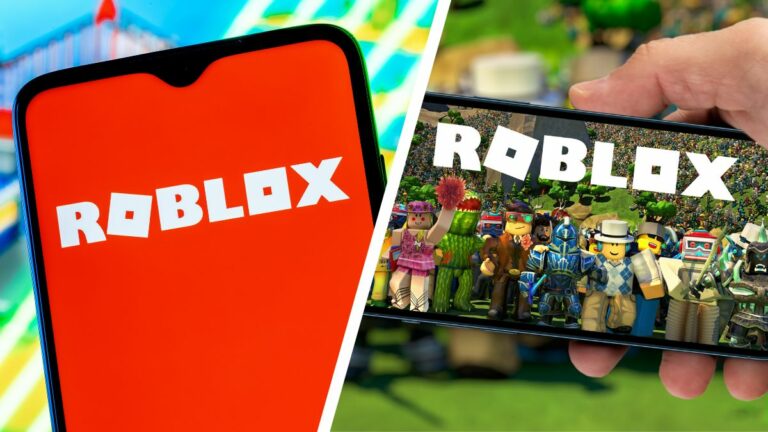
A new group of plaintiffs is suing Roblox and the operators behind Bloxflip, RBXFlip, and RBLXWild over accusations of collusion related to illegal gambling. Specifically, the proposed class action alleges that Roblox and the trio of illegal third-party online casinos prey on Roblox’s predominantly underage users.
The latest attempt to secure a class-action follows a near-identical lawsuit launched last August—also in the US District Court’s Northern District of California. In that case, plaintiffs Colvin and Sass argued Roblox enables and benefits from illegal, underage online casino gambling occurring on the platform on behalf of minors and proposed classes.
In the latest effort, four new plaintiffs (Gentry, Rodriguez, Munson, and Gann) representing seven minors leveled accusations against Roblox, matching the Colvin case nearly word-for-word. The only substantial differences between arguments involve state-specific complaints and the plaintiffs themselves.
Indeed, both filings introduce the case as follows:
This is a case concerning an illegal gambling operation that is preying on children nationwide. As described herein, Plaintiffs bring this action on behalf of themselves, their minor children, and proposed classes of all those similarly situated against Roblox and its co-conspirators, Satozuki, Studs, and RBLXWild. Together, these entities maintain and facilitate an illegal gambling ecosystem, targeted at children, through Roblox’s online gaming platform and digital currency.
Allegations Closely Mirror Previous Complaint
As noted above, defendant Studs Entertainment operates the Bloxflip site while Satozuki Limited offers RBXFlip. As Bonus previously reported, RBLXWild (previously operated by RBLXWild Entertainment) has been offline since being acquired by Bloxmoon, another site with the same gaming model.
A current message on the RBLXWild site tells users the site is “getting lots of updates” that will “take some time.” While an earlier message said the updates would be completed by the end of August last year, it now cautions RBLZWild won’t relaunch “sooner than March.”
Also, some Bloxmoon users have reported problems accessing their accounts. That said, neither class action directly targets RBLXWild’s new owner.
However, both class-action plaintiffs argue that Roblox “misleadingly represents” its platform and digital currency as safe. Additionally, the new filing claims, again mimicking the Colvin matter, that Roblox explicitly identifies simulated gambling and betting as out of bounds.
In reality, this representation is misleading at best, according to both legal actions:
Roblox allows third-party gambling websites, including the highly popular online casinos operated by Defendants Satozuki, Studs, and RBLXWild (collectively, the “Gambling Website Defendants”), to use the Roblox website to accept online bets using Robux, to be placed on games at the Gambling Website Defendants’ virtual casinos. Roblox also facilitates the Gambling Website Defendants’ efforts to track bets, complete transactions, wager Robux, and satisfy wagers in their digital casinos.
New Case Lands as First Moves to Discovery
Notably, in November, Roblox petitioned the court to dismiss the earlier case, arguing it is a neutral participant and cannot be held responsible for third-party actions.
Roblox’s motion argued that Section 230 of the Communications Decency Act (CDA), which protects companies from liability for harmful third-party content, nullified the plaintiffs’ claims.
Section 230, Roblox offered, precludes all nine counts presented in the plaintiffs’ case:
Plaintiffs’ claims — all premised on the theory that Roblox failed to ban the VC Developers from using the platform due to their publication of “gambling games” and virtual “chips” — are precluded by Section 230, which bars claims against “(1) a provider or user of an interactive computer service (2) whom a plaintiff seeks to treat … as a publisher or speaker (3) of information provided by another information content provider.
Further, Roblox argued that the law establishes broad federal immunity to any cause of action, making providers liable for information originating from a third-party user.
However, a Feb.23 referral to a magistrate for discovery indicates Roblox was unsuccessful in securing a dismissal during its Jan. 18 motion hearing.
The court allowing the Colvin case to continue may help explain the timing of the latest lawsuit.
After all, it’s much easier to take a risk once it becomes less risky. At this point, the courts may combine the two cases into one larger action. Bonus contacted the lawyers handling the new case for more information but received no response.
Regardless, both the Colvin and Gentry cases spotlight the financial boost Roblox gains from illegal online casino activity on its platform. Additionally, both efforts seek damages, restitution, and declaratory and injunctive relief for the harm caused.
Plaintiffs’ minor children—like hundreds of thousands of others across the United States—fell prey to this illegal scheme and were victimized out of real money. As a result, the Gambling Website Defendants have earned millions off the backs of those too young to legally gamble, all the while providing Roblox with a sizable cut of the money they’ve illegally obtained.





